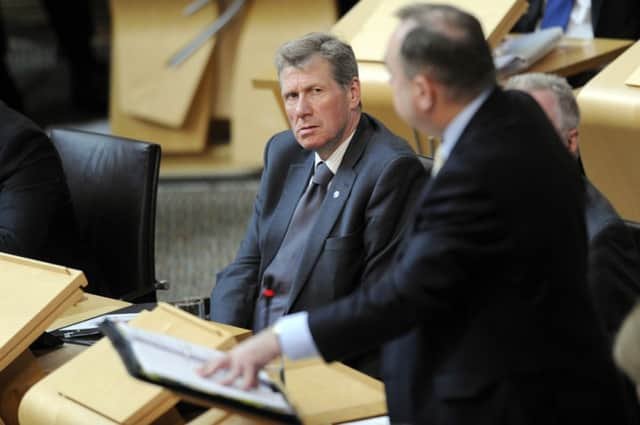Chris Marshall: Has Kenny MacAskill left a legacy?


The justice secretary had cut an increasingly forlorn figure in recent months, only narrowly avoiding a vote of no confidence when opposition MSPs demanded he resign over his handling of the issue of armed policing.
Indeed, it was telling that those in uniform seemed to be the unhappiest to see the justice secretary go.
Advertisement
Hide AdAdvertisement
Hide AdNiven Rennie, president of the Association of Scottish Police Superintendents, used his Twitter account to describe Mr MacAskill as “a statesman” who would be a “hard act to follow”. But ringing endorsements from the police force should not be a badge of honour for a politician.
CONNECT WITH THE SCOTSMAN
• Subscribe to our daily newsletter (requires registration) and get the latest news, sport and business headlines delivered to your inbox every morning
The praise heaped on the departing justice secretary reflected what had been an ever-increasing willingness on his part to cede power to the police on “operational matters”. Nowhere was this more apparent than in the police’s unilateral decision to allow a small number of officers to carry guns on routine patrol, a decision Mr MacAskill was made aware of but raised not a peep about. This particular “operational matter” came to light only when concerned citizens of Inverness began reporting gun-carrying cops on the largely crime-free streets of the Highland capital.
His apparent reticence to gets his hands dirty did not mark the justice secretary’s entire time in office, however. He did not shy away from controversy, the erroneous decision to release Abdelbaset Ali Mohmed al-Megrahi – the only man convicted of the Lockerbie bombing – being a case in point.
However, it will no doubt be two legal reforms – one enacted, the other proposed – that will prove to be the most significant part of his legacy. The conviction this month of Angus Sinclair for the 1977 World’s End murders could not have happened had the Scottish Government not introduced amended double jeopardy legislation, which allows for a second prosecution to be brought in the event of new evidence.
But it is proposed changes to corroboration, the legal principle that requires two independent pieces of evidence to bring a case to trial, which are likely to prove the more contentious. Faced with a storm of protest from the legal establishment earlier this year, Mr MacAskill shrewdly held back passage of the Criminal Justice (Scotland) Bill, of which scrapping corroboration is part, until the independence referendum was safely out of the way. As far as his successor, Michael Matheson, is concerned, the inevitable rammy over corroboration is likely to be Mr MacAskill’s most immediate legacy.
SCOTSMAN TABLET AND IPHONE APPS